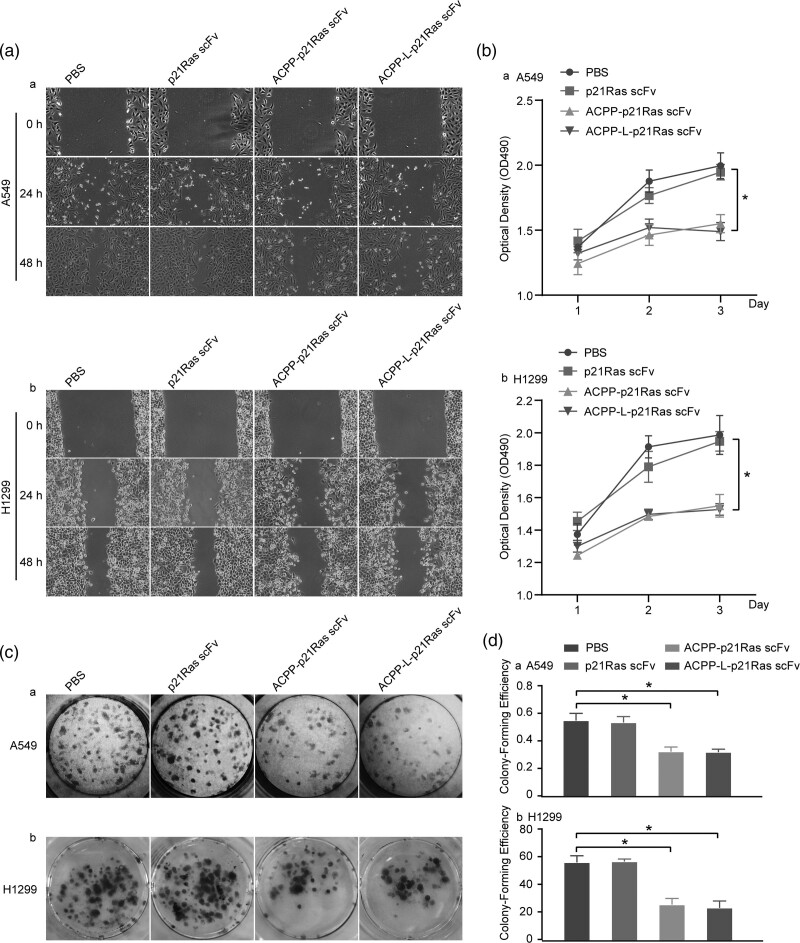Fig. 4.
Anti tumour effects of activatable cell-penetrating peptide (ACPP)-p21Ras scFv on A549 cells and H1299 cells in vitro. (a) The scratch experiment revealed that the healing of A549 cells and H1299 cells treated with ACPP-p21Ras scFv and ACPP-L-p21Ras scFv were slower than those treated with p21Ras scFv and PBS at 24 and 48 h, indicating that ACPP-p21Ras scFv can inhibit the migration of A549 cells and H1299 cells. (b) The MTT assay was used to investigate the killing effect of ACPP-p21Ras scFv to A549 cells and H1299 cells. The OD490 (living cell) of A549 cells and H1299 cells treated with ACPP-p21Ras scFv and ACPP-L-p21Ras scFv were lower than those treated with p21Ras scFv and PBS (P < 0.05) on 2 d and 3 d (P < 0.05). (c and d) The clone formation test demonstrated that the proliferation ability of A549 cells and H1299 cells treated with ACPP-p21Ras scFv and ACPP-L-p21Ras scFv were lower than that treated with p21Ras scFv and PBS (P < 0.05). MTT, 3-(4,5-dimethylthiazol-2-yl)-2,5-diphenyltetrazolium bromide.

